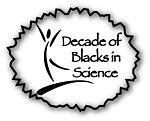Science can seem like a very intimidating field. It is loaded with jargon and language most lay people seldom use. But What is Science? What do Scientists do? Simply put, science is a principled or methodological way of learning about ourselves and our world. It involves closely observing phenonmena, formulating hypotheses about processes related to the phenonmena and rigourously testing the hypotheses for validity. Scientists take very careful steps to ensure honesty and intergrity of the research we undertake. This includes making proper and accurate measurements, controlling for errors, and most importantly making accurate and conservative conclusions about the results from our studies. We share this information with the general public in a variety of ways. But, most people receive information from media outlets to inform them about new scientific discoveries, especially about medicines and proceedures to improve our health and quality of life. More often than not, the public only learns about the discovery itself. How the discovery is made, the time, and resources necessary to yield the promising results, and the cautiouis conclusions are often not reported to the general public. This may lead to people making under- or uniformed decisions about policies related to ecosystems, utilties, health care, and biomedical research.
Understanding science and how scientific discoveries benefit humans and our quality of life is important. On, Tuesday, November 7, citizens of Missouri will vote on legislation related to Stem Cell Research in Missouri.
What are stem cells? Good question. Stem cells are undifferentiated cells which have the unique potential to produce any kind of cell in the body and self-renewal capacity. Undifferentitated means the cell hasn't yet matured to become a particular tissue or organ. Bone marrow is a commonly known type of stem cell. Embryonic stem cells are derived from early embryos that can replicate indefinitely and differentiate into many cell types. Stem cells serve as a continuous source of new cells.
How are embryonic stem cells created and harvested? You can found out here. If you have ethical concerns, you are not alone. Please use this information about HOW embryonic stem cells are created and harvested to help you make sense of this important issue.
Missourians are being asked to vote on this measure because medical researchers believe stem cells have the potential to change the face of human disease by being used to repair specific tissues or to grow organs. So, more than ever, it is important for citizens to understand what science is, how science can impact our quality of life, and how policy is created based on scientific discoveries. Specific to this matter, Missourians also need to accurately understand what this law - if passed- will and will not allow in the way of Stem Cell Research. For more information about this State of Missouri Ballot Initiative please visit http://www.sos.mo.gov/news.asp?id=474.
As a matter of history, t he United States Federal Government DOES allow stem cell research right now, but has imposed several limitations. You can read information from previous Science Magazine articles about Stem Cell Research and Funding here, here, here, and here. Also visit http://stemcells.nih.gov/policy/ to learn more about current state of stem cell research in the United States. The federal statutes and the proposed Missouri statutes both prohibit/outlaw cloning and developing new embryonic stem cell lines. This means that women cannot offer to sell and labs cannot offer to pay for eggs.
Happy information hunting. DNLee
Monday, October 23, 2006
Missouri will vote on Stem Cell Research - The Importance of Scientific Literacy
Monday, October 16, 2006
Scholarship to attend Conservation Conference
There is a conference scholarship for persons from under represented groups to attend a Conference on the perservation of parks, protected areas, and cultural sites.
Sponsored by the George Wright Society
http://www.georgewright.org/
Information and online application: http://www.georgewright.org/gws2007_scholarship.html
Conference dates: April 16-20, 2007 in St.Paul, Minnesota.
Scholarship deadline: November 10, 2006
Labels:
announcement,
science and the public
Subscribe to:
Posts (Atom)





















